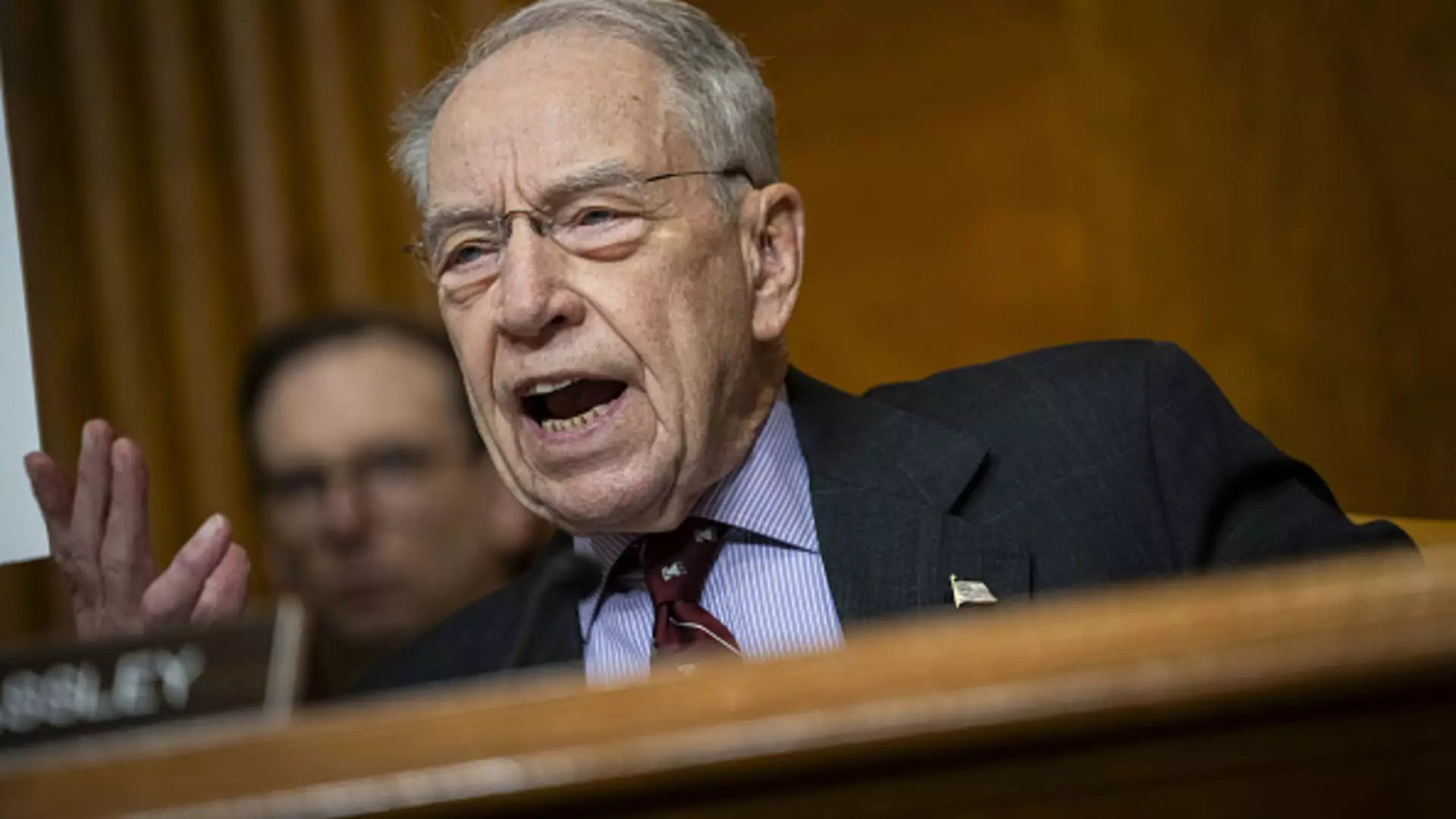The debate surrounding the topic of imposing higher taxes on corporations and wealthy Americans has reached a critical point in Congress. Lawmakers and experts are currently considering several Democratic proposals aimed at addressing income inequality and the federal budget deficit. One of the key arguments in favor of these proposals is the belief that higher taxes on corporations and the wealthy could lead to a more equitable tax system that generates additional revenue and promotes economic growth.
However, not all lawmakers are in agreement when it comes to implementing these tax increases. Senator Chuck Grassley from Iowa highlighted the lack of support for certain proposals, such as reforms to carried interest, even among Democrats. The removal of these changes from the Inflation Reduction Act before it was passed in the Senate indicates that there are significant obstacles to enacting comprehensive tax reforms. Senator Mitt Romney from Utah also expressed concerns about the potential unintended consequences of the proposed tax increases on the economy.
President Joe Biden has been vocal about his support for higher taxes on the wealthy and corporations as a means to offset the costs of extending expiring tax breaks for filers earning less than $400,000. The Tax Cuts and Jobs Act of 2017, enacted during former President Donald Trump’s administration, included several provisions that lowered federal income brackets and increased the standard deduction. However, if no action is taken by Congress, a significant portion of taxpayers could face higher tax bills once these provisions expire after 2025.
While a full extension of expiring tax provisions could provide relief to taxpayers, it comes at a steep cost. The Congressional Budget Office estimates that extending these provisions could add up to $4.6 trillion to the deficit over the next decade. This underscores the need for careful consideration and planning when it comes to implementing tax policy changes that have long-term fiscal implications.
The future of tax legislation ultimately depends on the political landscape, with the control of Congress and the White House playing a crucial role in determining the fate of proposed tax reforms. While President Trump has expressed interest in extending expiring provisions of the Tax Cuts and Jobs Act, the decision will hinge on the priorities and strategies of the party in power.
The debate over higher taxes on corporations and wealthy Americans reflects broader discussions about income inequality, fiscal responsibility, and economic growth. Lawmakers must carefully weigh the potential benefits and drawbacks of tax policy changes to ensure that any reforms are equitable, sustainable, and supportive of long-term economic prosperity.

Leave a Reply